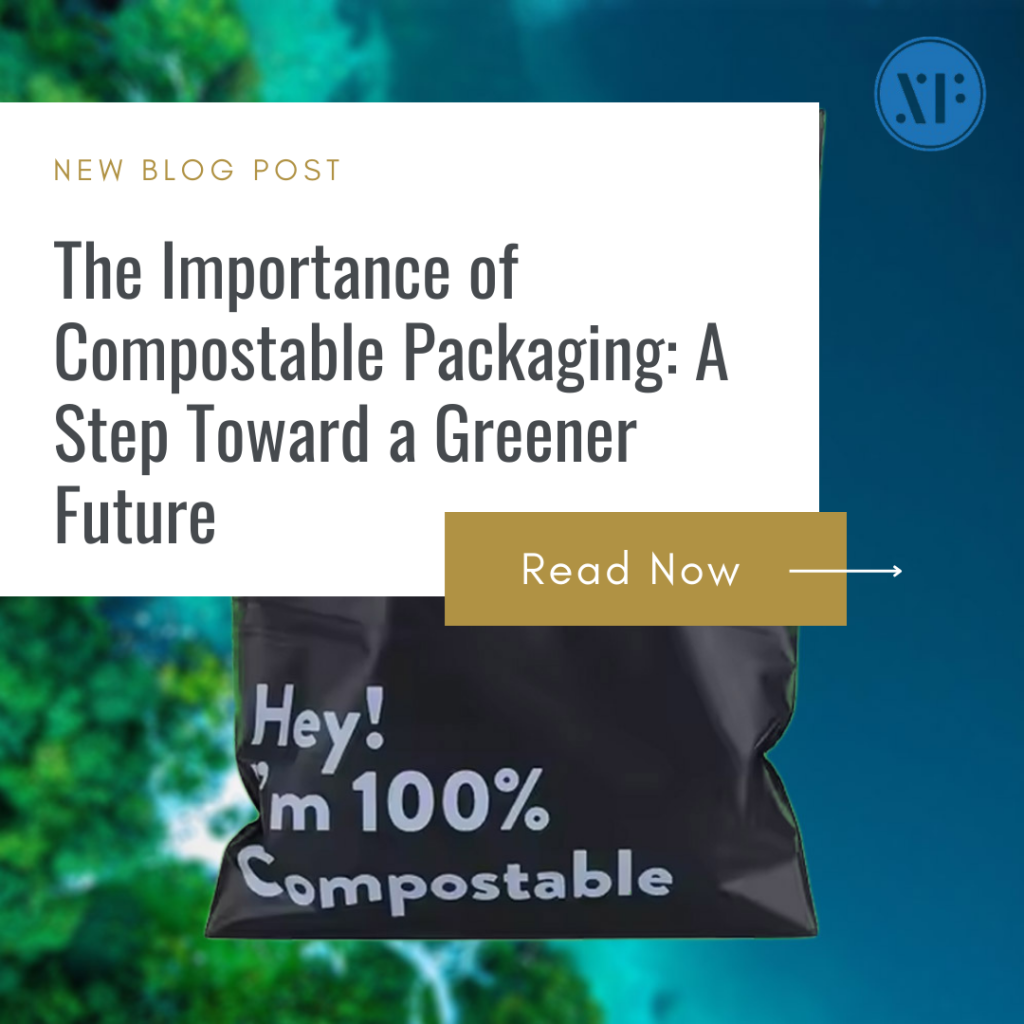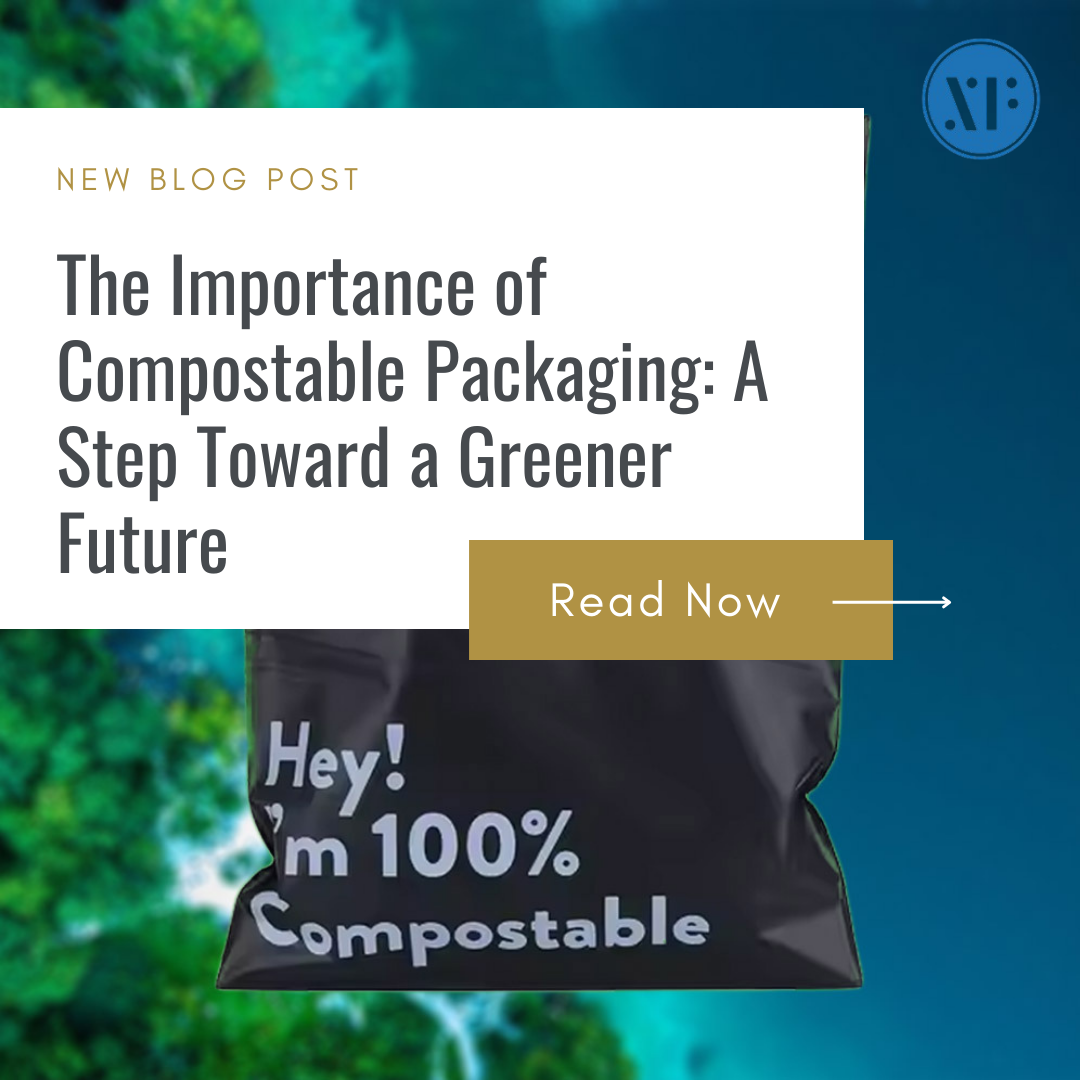
The Importance of Compostable Packaging:
A Step Toward A Greener Future
In today’s world, where plastic pollution is a growing concern, compostable packaging is emerging as a sustainable alternative to traditional plastic packaging. Businesses and consumers are becoming increasingly aware of the environmental impact of excessive plastic waste, leading to a shift toward eco-friendly solutions. Compostable packaging not only reduces landfill waste but also plays a crucial role in protecting ecosystems and promoting sustainability.
What is Compostable Packaging?
Compostable packaging is made from natural, biodegradable materials such as plant-based starches, bamboo fiber, bagasse, and biopolymers that break down naturally in composting environments. Unlike conventional plastics that take hundreds of years to degrade, compostable packaging decomposes within months, turning into organic matter that enriches the soil.
The key difference between compostable and biodegradable packaging is that compostable materials break down completely into non-toxic components, while biodegradable materials may leave behind microplastics if not properly processed.
Why Is Compostable Packaging Important?
- Reduces Plastic Waste and Pollution
Traditional plastic packaging is one of the biggest contributors to global pollution, filling up landfills and polluting oceans. Plastics can take hundreds to thousands of years to break down, harming wildlife and ecosystems. Compostable packaging offers a practical solution by decomposing quickly and naturally, reducing overall waste. - Lowers Carbon Footprint
The production of conventional plastics relies heavily on fossil fuels, leading to high carbon emissions. In contrast, compostable packaging is made from renewable, plant-based resources, significantly reducing the carbon footprint. The energy required to manufacture compostable materials is often lower, making them a more sustainable and eco-friendly choice. - Eliminates Harmful Chemicals
Plastic packaging often contains toxic chemicals that can leach into food and beverages, posing health risks. Compostable packaging is free from harmful chemicals, ensuring safety for both consumers and the environment. - Supports the Circular Economy
A circular economy is built on reducing waste, reusing materials, and recycling resources. Compostable packaging aligns with this model by ensuring that products do not end up in landfills but instead return to the earth in a natural, beneficial way. - Enhances Soil Quality
When compostable packaging decomposes, it adds nutrients back into the soil insteadof leaving behind microplastics. This helps promote healthy plant growth, making compostable materials a key player in sustainable agriculture and waste management. - Meets Growing Consumer Demand for Sustainable Products
Today’s consumers are increasingly making eco-conscious purchasing decisions. Businesses that adopt compostable packaging gain a competitive advantage by appealing to environmentally responsible buyers. Studies show that more than 70% of consumers prefer brands that take sustainability seriously, making compostable packaging a smart business decision. - Complies with Global Environmental Regulations
Governments worldwide are enforcing stricter regulations on plastic waste, including bans on single-use plastics. Companies that switch to compostable packaging stay ahead of regulations and demonstrate corporate responsibility.
How Businesses Can Transition to Compostable Packaging
Switching to compostable packaging requires planning and investment, but the long-term benefits outweigh the costs. Here’s how businesses can start:
- Choose Certified Compostable Materials – Look for packaging that meets industry standards such as Australian Standard AS 4736 & AS 5810, OK COMPOST INDUSTRIAL, EN13432:2000-12, and ASTM D6400.
- Educate Consumers – Provide clear disposal instructions so customers know how to compost their packaging correctly.
- Partner with Composting Facilities – Businesses can collaborate with local composting plants to ensure proper waste management.
- Incorporate Sustainable Packaging in Branding – Companies should highlight their commitment to eco-friendly practices to attract environmentally conscious customers.
XF COMPACK 100% Compostable Bags
A great example of compostable packaging innovation is XF COMPACK 100% compostable bags. Made from natural plant starch and bio-based polymers, these bags break down in composting environments without releasing harmful chemicals.
Why Choose XF COMPACK Compostable Bags?
- 100% Compostable – Fully decomposes into natural elements, leaving no toxic residue.
- Eco-Friendly Alternative – Made from sustainable materials, reducing plastic pollution.
- Certified Compostable – Meets global environmental standards (AS 4736, ASTM D6400, EN13432).
- Versatile Applications – Used for mailers, envelopes, garment bags, ziplock bags, shopping bags, bubble bags, bin bags, and more.
Final Thoughts
Compostable packaging is more than just an eco-friendly alternative— it is a necessary step toward a sustainable future. By reducing plastic waste, lowering carbon emissions, and supporting the circular economy, businesses and consumers alike can positively impact the environment.
If you’re looking to embrace sustainability, XF COMPACK 100% compostable bags offer a practical, certified solution that aligns with global environmental goals. Make the switch today—because every choice matters in protecting our planet.


